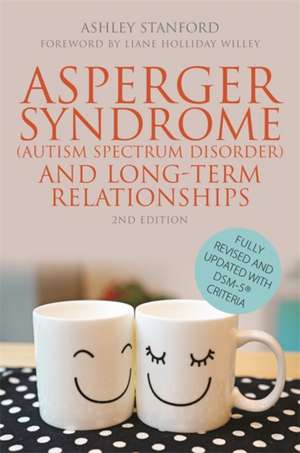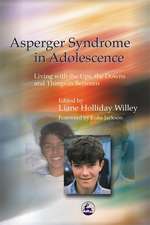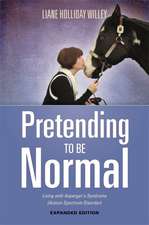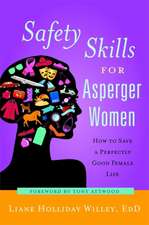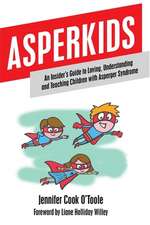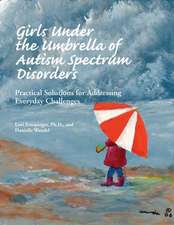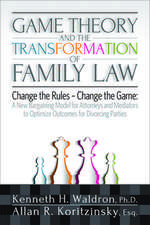Asperger Syndrome (Autism Spectrum Disorder) and Long-Term Relationships
Autor Ashley Stanford Liane Holliday Willeyen Limba Engleză Paperback – 31 oct 2014
Preț: 117.16 lei
Preț vechi: 139.77 lei
-16% Nou
Puncte Express: 176
Preț estimativ în valută:
22.42€ • 23.41$ • 18.55£
22.42€ • 23.41$ • 18.55£
Carte disponibilă
Livrare economică 14-28 martie
Livrare express 27 februarie-05 martie pentru 51.29 lei
Preluare comenzi: 021 569.72.76
Specificații
ISBN-13: 9781849057738
ISBN-10: 1849057737
Pagini: 288
Dimensiuni: 155 x 229 x 19 mm
Greutate: 0.45 kg
Ediția:Revised.
Editura: JESSICA KINGSLEY PUBLISHERS
ISBN-10: 1849057737
Pagini: 288
Dimensiuni: 155 x 229 x 19 mm
Greutate: 0.45 kg
Ediția:Revised.
Editura: JESSICA KINGSLEY PUBLISHERS
Notă biografică
Ashley Stanford has worked as a technical writer for 17 years and is the CEO of a successful computer software company. She is the author of Troubleshooting Relationships on the Autism Spectrum and Business for Aspies, also published by Jessica Kingsley Publishers. She and her husband live in California with their four children.
Cuprins
Acknowledgments. Foreword by Liane Holliday Willey. Preface. 1. One Day I Woke Up. 2. What Does Asperger Syndrome (Autism Spectrum Disorder) Look Like in an Adult? 3. The Full Realization. 4. Diagnostic Criteria A - Persistent Deficits in Social Communication and Interaction. What it May Look Like: Social Reciprocity. What it May Look Like: Emotional Reciprocity. What it May Look Like: Sharing Interests. What it May Look Like: Failure to Initiate or Respond to Social Interactions. What it May Look Like: Eye Contact. What it May Look Like: Body Language. What it May Look Like: Gestures. What it May Look Like: Facial Expression. What it May Look Like: Relationships. What it May Look Like: Sharing Enjoyment. 5. Diagnostic Criteria B - Restricted, Repetitive Patterns of Behavior. What it May Look Like: Repetitive Movements. What it May Look Like: Routines. What it May Look Like: Fixated Interest. What it May Look Like: Sensory Dysfunction. 6. Diagnostic Criteria C - Symptoms Must Be Present in Early Development. What it May Look Like: Language through the Lifespan. 7. Diagnostic Criteria D - Clinically Significant Impairment in Social, Occupational, or Other Functioning. What it May Look Like: Social. What it May Look Like: Occupational. 8. Diagnostic Criteria E - Not Better Explained by Intellectual Disability. What it May Look Like: Cognitive Development. What it May Look Like: Self-Help Skills/Adaptive Behavior. 9. The ASD-Linked Long-Term Relationship. 10. Help! Where to Look. Epilogue. Glossary. References. Index.
